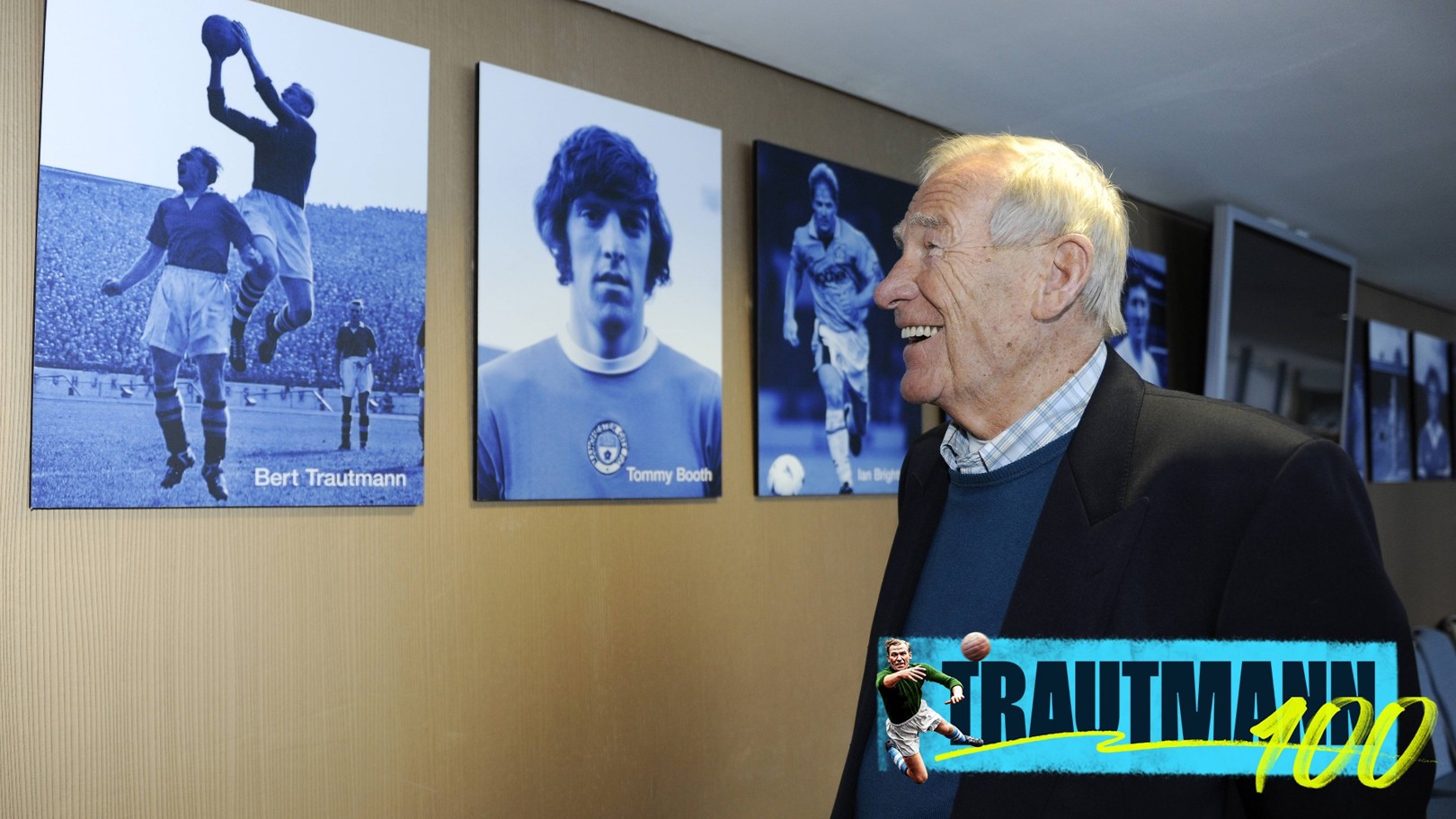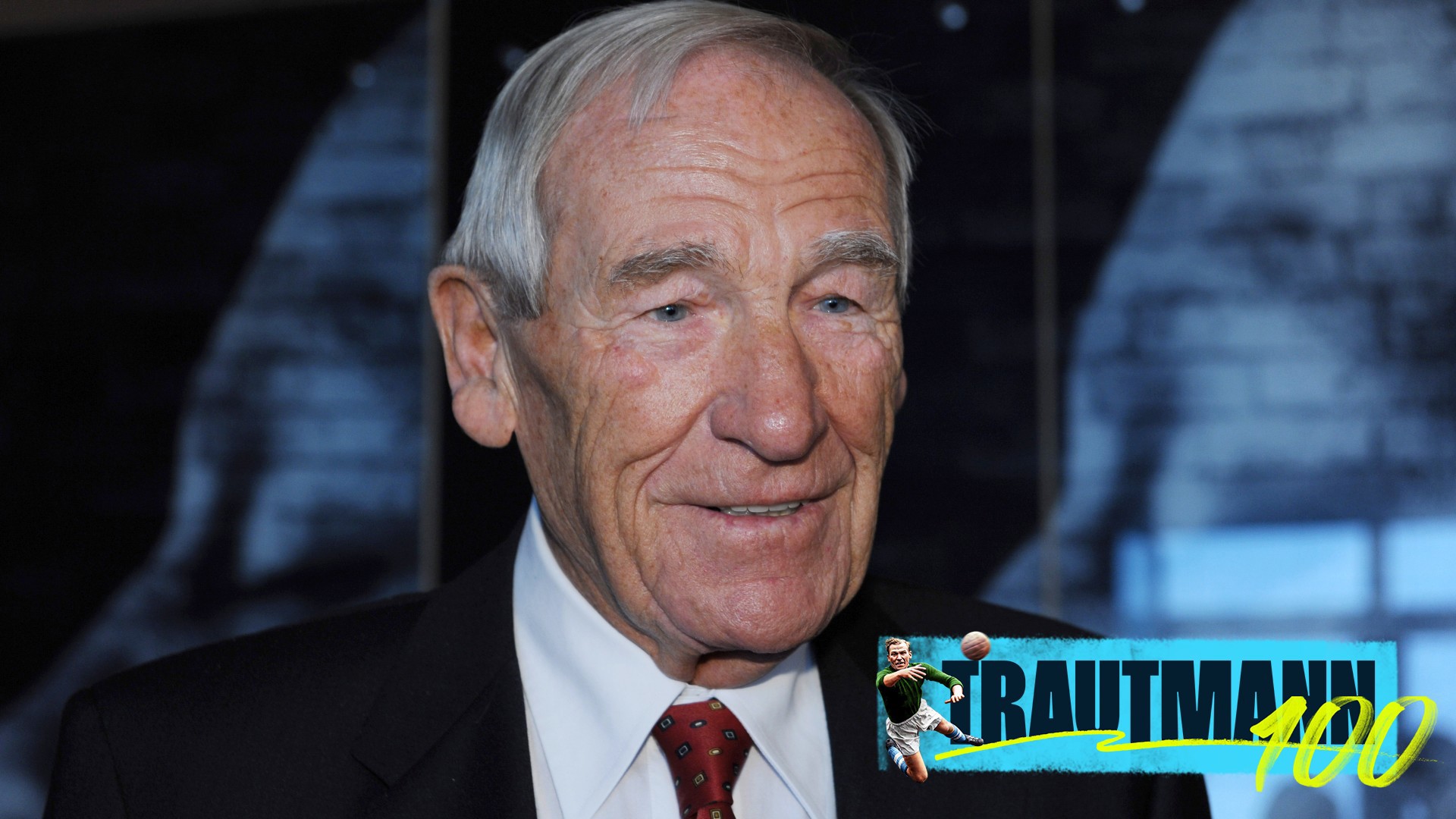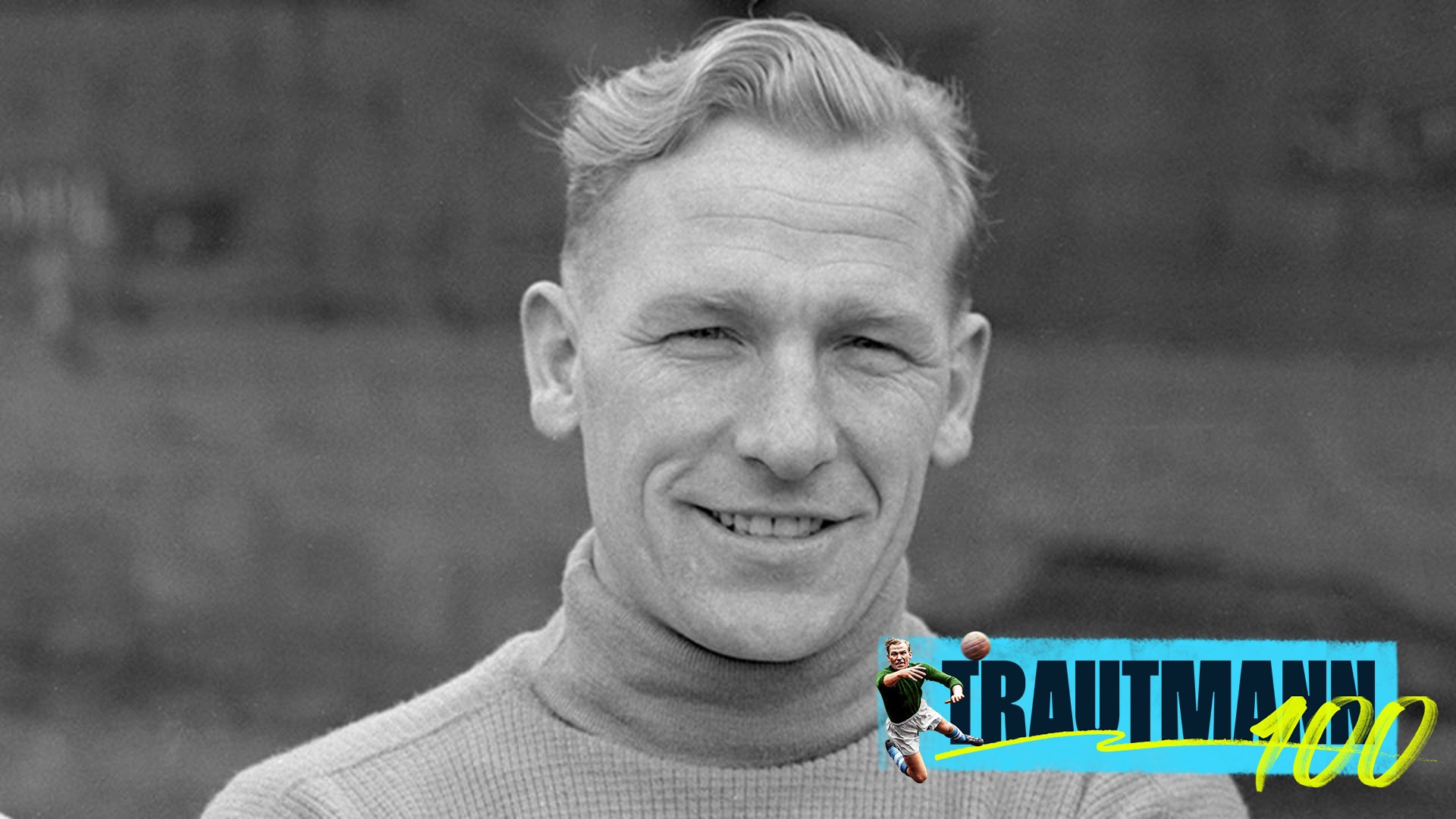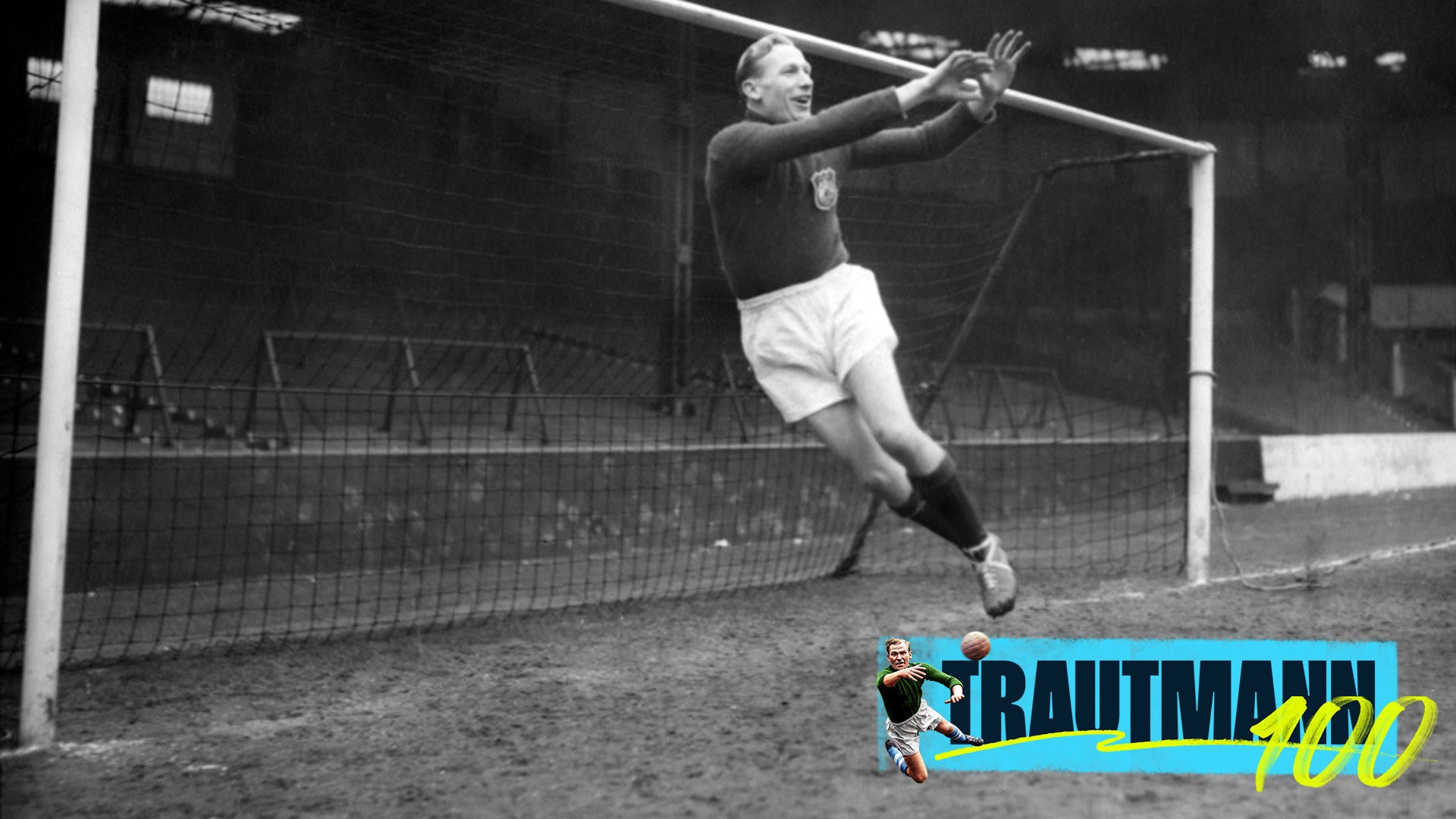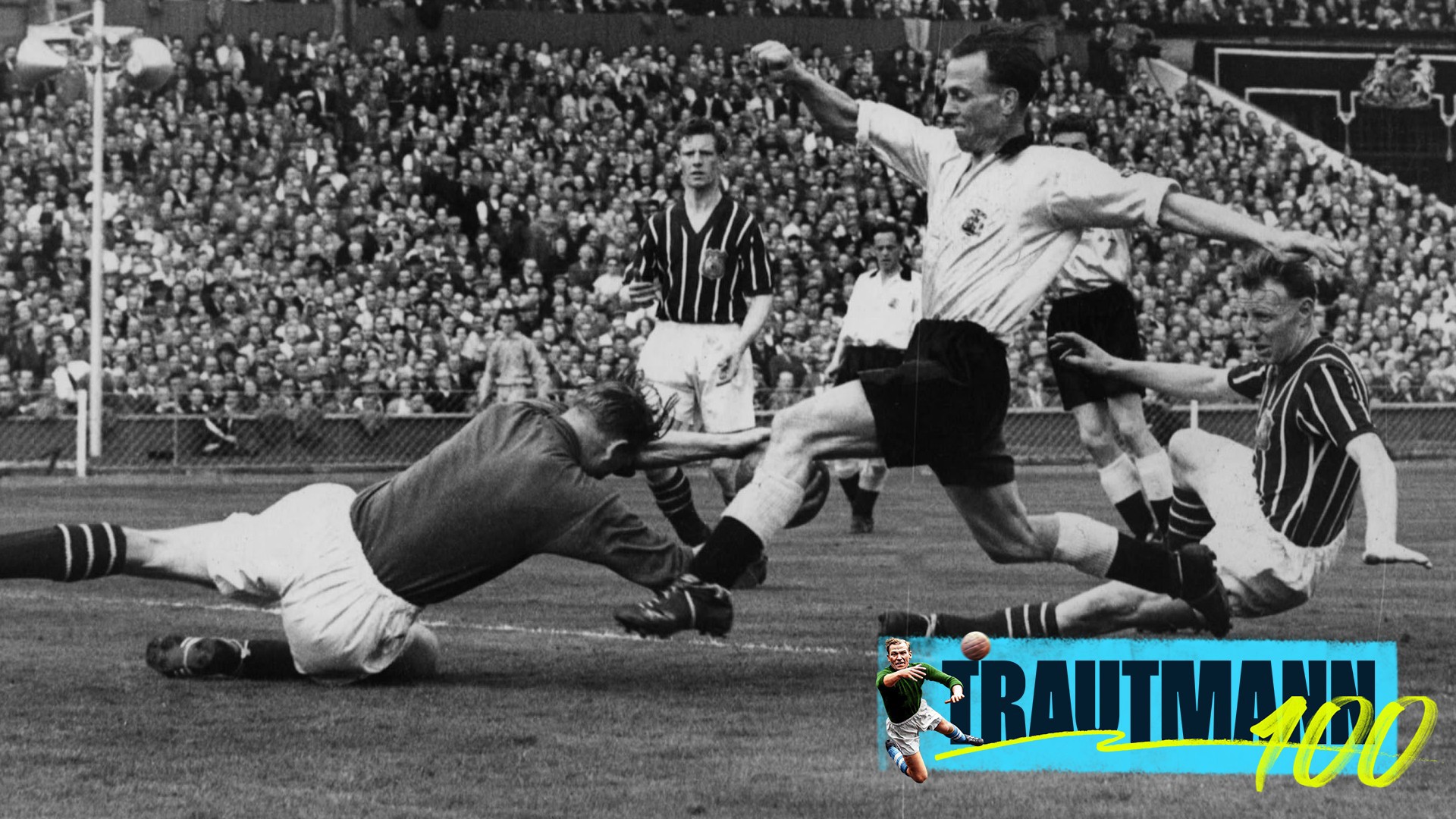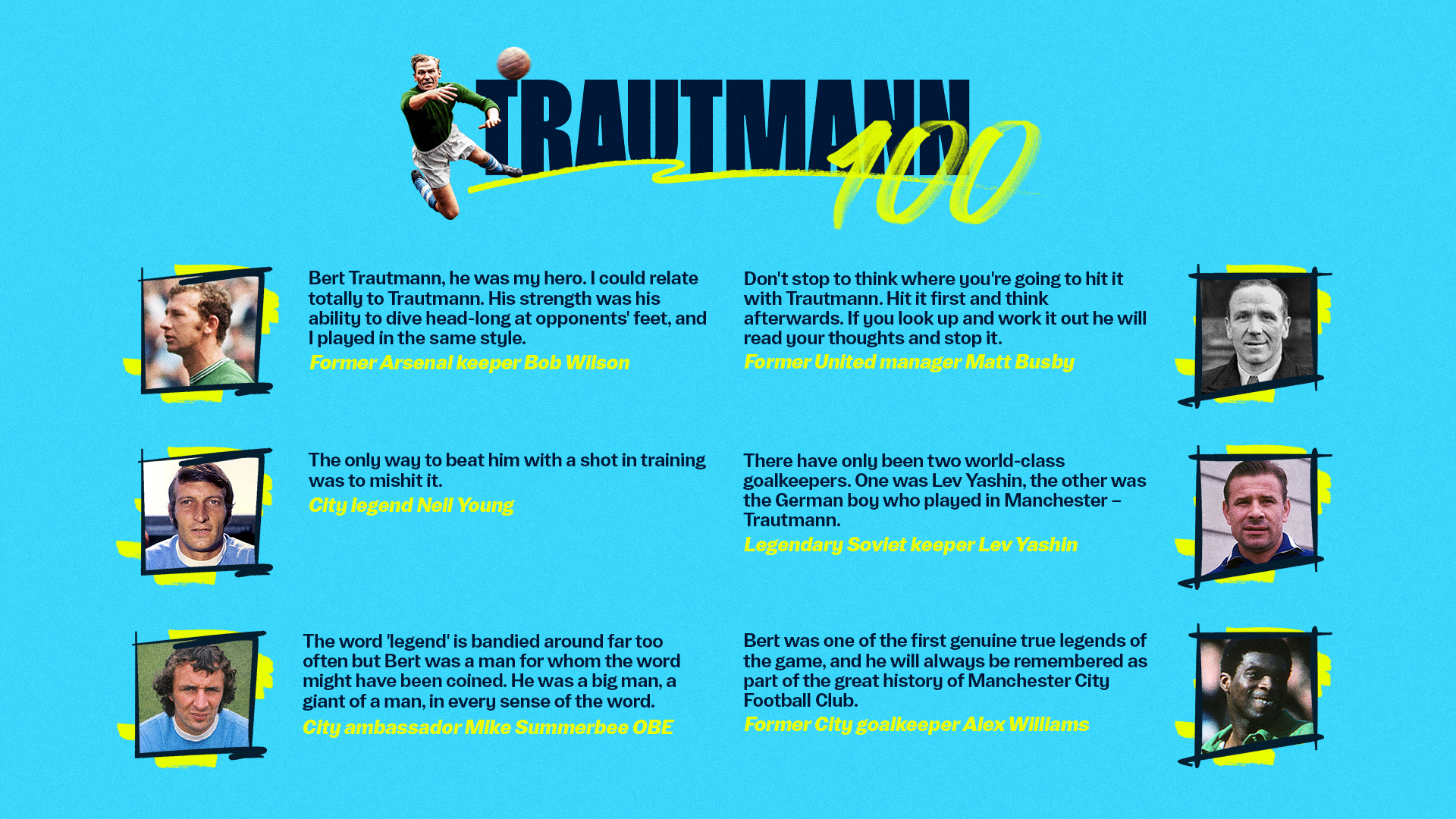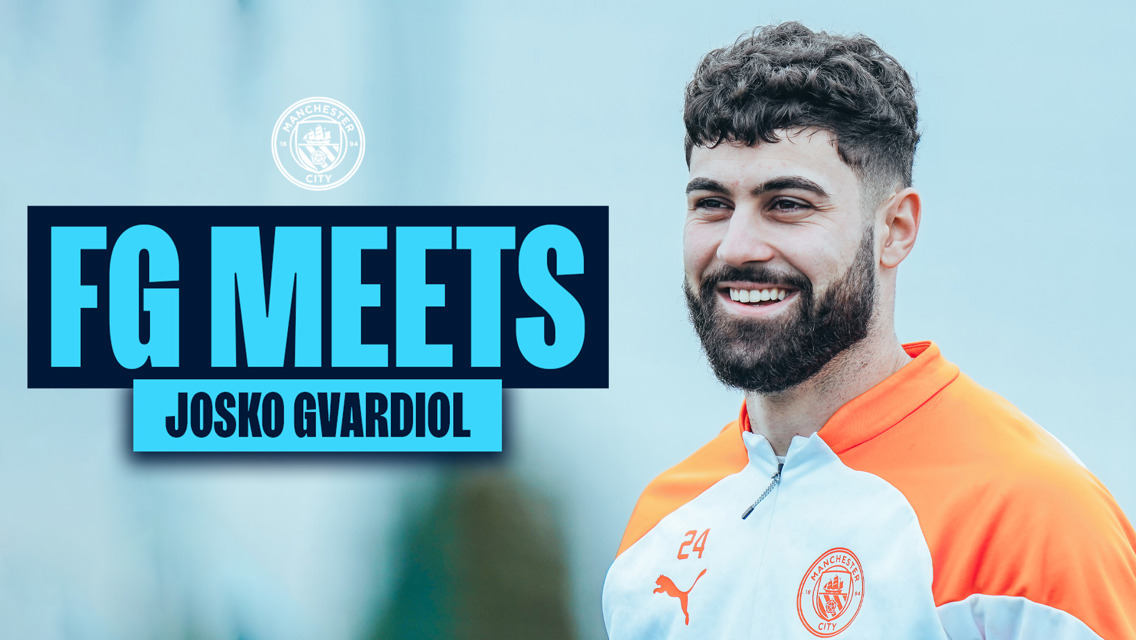One of the towering figures in City’s post-war history – Trautmann’s story truly is the stuff of legend.
A former German paratrooper during the Second World War who was subsequently captured by the Russians before then becoming a prisoner of war in Britain, Bert would go on to become not just a City legend but an icon of English football too thanks to his heroics in playing on with a broken neck during the 1956 FA Cup final, helping City beat Birmingham 3-1 at Wembley.
His brilliance as a keeper, all-round bravery and steadfast dedication to the Club are, of course, firmly etched in City folklore with Bert going to make 545 appearances in total between 1949 and 1964.
Few came to know and appreciate the German’s seismic impact both on City specifically and the art of goalkeeping in general more than fellow Club legend and former iconic keeper Corrigan.
The pair would go on to become close friends with Trautmann even subsequently penning the foreword to Corrigan’s autobiography ‘Big Joe’.
In trying to sum up Trautmann’s enduring legacy, Joe says one incident in particular, after Corrigan had endured the toughest of afternoons at Maine Road in 1970 when West Ham’s Ronnie Boyce scored an infamous 35-yard volley straight past him from his kick-out on a pudding of a Maine Road pitch, served to illustrate both the measure of the man and his generous, giving nature.
“The idea of a goalkeeping coach wasn’t really part of the football landscape in those days when I was playing but just speaking to Bert, he always offered so much advice and so much help and we eventually became really good friends,” Joe recalls.
“In that respect he was a great influence and as a young man to listen to what he had to say and to get an insight into his experiences during his career at City was amazing.
“It helped give me another outlook in how to accept certain situations for which I couldn’t thank him enough.
“I think our relationship really took hold after that infamous match with West Ham when Ronnie Boyce scored a direct volley from my kick out.
“When I first signed for City, our coach Malcolm Allison had said in the press that Joe Corrigan was going to be better than Frank Swift and Bert Trautmann.
“Being compared to those two legends was a huge thing to have around your shoulders.
“And I remember after the West Ham game, we were all in the dressing room when Len Davies, the former commissionaire at Maine Road and another tremendous guy and good friend of mine, knocked on the door.
“Len said: ‘Can I speak to Joe Mercer’ and then he asked the boss if there was any possibility that I could go up to the boardroom to speak to Bert Trautmann.
“I thought: ‘Oh no, I’ve just let in one of the most horrendous goals and Bert happened to be in the stand and now he wants to speak to me…’
“Anyway, I went upstairs to the boardroom – a place where back then players rarely went - and Bert just gestured for me to go into a quiet corner of the room.
“He then took me to one side and said: ‘Listen to me, put that to one side and try to forget about it.’
“He added: ‘You are a really good goalkeeper, put it behind you and people will soon forget about it.’
“Bert continued: ‘I remember in one of my early games for City I let a goal in after 19 seconds which bounced over my shoulder, and we ended up conceding six. Joe, you just can’t do anything about it. It’s a goal but you just need to get on with life.’
“I had gone up there thinking I was going to get criticised. Instead, what Bert had to say was all positive, and all constructive.
“To hear those words and that initial response from Bert was amazing and it put me in good stead for the rest of my career.
“He subsequently kept in touch and always said to me: ‘Hard work, hard work - that’s all you need to do. You’ve got the ability, just keep working as hard as you can.
“He was brilliant and such a good friend and such a nice man away from football.
“I was also so honoured that he wrote the foreword to my autobiography. He was amazing and so kind to me.
“Thinking back, his start at the club must have been so traumatic given he had been a German prisoner of war. Watching the film, The Keeper, gave you an idea of what he had gone though as a young man just after the Second World War.
“But what he went on to achieve just shows you the character of the man.
“He was one of the great, great goalkeepers.”
Another moving exchange followed a few years later at a Club function, where Trautmann spoke movingly and passionately about the historic lineage of memorable City goalkeepers and where he believed he and Corrigan fitted into the pantheon.
For Corrigan it was a conversation that was to literally take the breath away.
“Another memorable chat was when I met him at one of our former players dinners where all the former goalkeepers were around. The likes of Ken Mulhearn, Harry Dowd, Alan Ogley and Bert were all there along with me.
“We all sat down and were having a glass of wine when Bert suddenly said to me: ‘Can I just say something to you?’
“He then said: ‘This club will never know how much three people have done to help keep it alive. Me, you and Frank Swift.’
“Bert added: ‘Without us three playing at the times we did – through the ups and the downs - the Club could have disappeared and would have really struggled.’
“To hear such words like that coming from such a great man was amazing to listen to. It meant so much.
“He wasn’t there all the time, but he was always there it seems at the right time with the right words.”
After his own illustrious playing career which, like Trautmann’s spanned three decades and saw him clock up more than 600 appearances for City – a tally only bettered by Alan Oakes – Joe then went on to enjoy a distinguished career as a highly respected goalkeeping coach with City, Liverpool and West Brom amongst the Clubs to benefit from his expertise.
Reflecting on his time coaching and mentoring, Corrigan said the words and advice he received from Trautmann helped guide and shape that part of his career too.
“Bert always said that goalkeepers were the be-all and end-all of what happens in a game. You were the last point of defending and the first point in attacking,” Joe adds.
“That is very similar to the theories of today.
“And his comments and advice were always all about others. He said: ‘I’m here to pass on my experience and advice to help you in your career and your life.’
“When I started goalkeeping coaching, I remembered those words so much… ‘you are there for them and to talk to them and to guide them and help them.’
“That really was what Bert was all about.”

